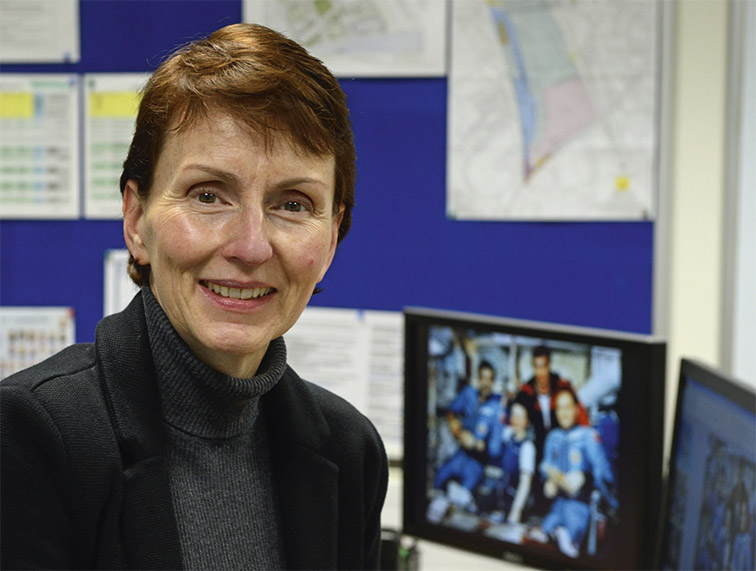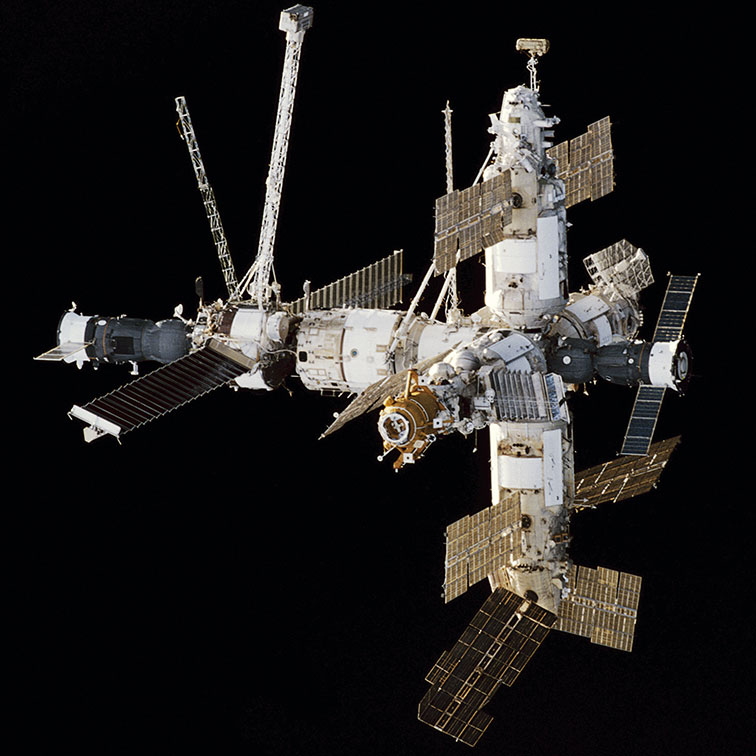
| |
 |
|
DR HELEN SHARMAN: “There are so many
billions of stars out there in the universe that
there must be all sorts of different forms of life.”
(Photo: Anne-Katrin Purkiss)
|
ACCORDING to the first Briton to go into space, aliens are real and could be living among us on Earth.
Now 56, Dr Helen Sharman heard a call for astronaut applicants on the radio while driving home from work. Despite fitting the criteria, she almost decided against applying for the programme, but decided to go ahead.
“Self-belief and a can-do attitude changed my life,” said Dr Sharman. “I ticked all the boxes, but thought they wouldn’t choose me, so I would not bother.
“By the time I got home, I’d realised that if I didn’t actually apply, then they couldn’t choose me.”
Dr Sharman beat over 13,000 others to gain a place on Project Juno. This was partially designed to boost London-Moscow relations by sending a Briton to the Russian space station Mir in May 1991.
Then 27, Dr Sharman’s eight-day mission transformed her into a national hero, yet she believes that her achievement is sometimes forgotten.
At one point, the UK Space Agency described Tim Peake, who travelled to the International Space Station in 2015, as the UK’s first official astronaut.
“When Tim Peake went into space, some people simply forgot about me,” said Dr Sharman.
“I’ve never defined myself by gender and continue not to do so. People often describe me as the first woman in space, but I was actually the first British person. It’s telling that we would otherwise assume it was a man.”
In an interview with the Observer Magazine, Dr Sharman said that extraterrestrial life is bound to exist in the universe. She commented:
“Aliens exist; there’s no two ways about it. There are so many billions of stars out there in the universe that there must be all sorts of different forms of life.
“Will they be like you and me, made up of carbon and nitrogen? Maybe not. It’s possible they’re here right now and we simply can’t see them.
 |
|
THE Mir Space Station as seen from the
Space Shuttle Endeavour.
(Photo: NASA)
|
|
“My one true love is mountains. Being up there in nature is serene and puts life in perspective. There’s something about their grandeur which makes insignificant my life and its problems.
“But it’s also the little things – a crystal in a rock; the small snail moving across a path – which remind me there’s so much wonder to be found if you just open your eyes to it.”
A chemist who now works at London’s Imperial College, Dr Sharman added:
“Being in space taught me that it’s people, not material goods, which truly matter. Up there we had all we needed to survive: the right temperature, food and drink, safety.
“I gave no thought to the physical items I owned on Earth. When we flew over specific parts of the globe, it was always our loved ones we thought of down below us…
“There’s no greater beauty than looking at the Earth from up high. I’ll never forget the first time I saw it.
“After take-off we left the atmosphere and suddenly light streamed in through the window. We were over the Pacific Ocean. The gloriously deep blue seas took my breath away.”
Dr Sharman was recognised in the 2018 New Year’s honours list and joined the Order of St Michael and St George.
|

